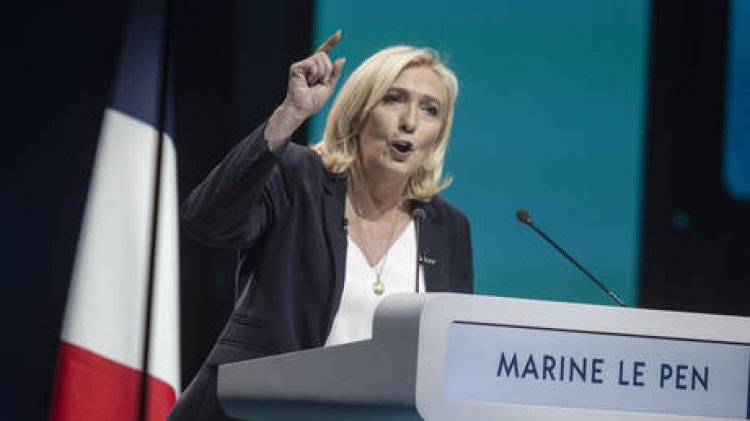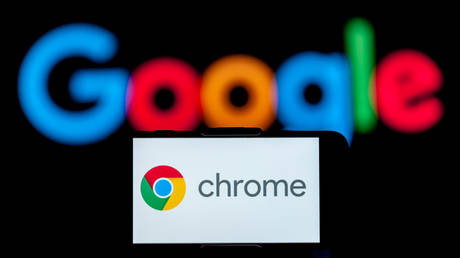Le Pen Verdict: How French Courts Continue to Marginalize Opponents of the Establishment
<b>The Case Against Marine Le Pen: A Convenient Disqualification</b> Earlier this week, the anti-establishment political leader from France, widely regarded as a front-runner for the presidency, was prohibited from running for office for five...

Earlier this week, the anti-establishment political leader from France, widely regarded as a front-runner for the presidency, was prohibited from running for office for five years. How convenient.
Marine Le Pen, the leader of the right-wing National Rally, faced conviction in a Paris court for embezzling European Union funds. Charged with orchestrating a scheme where aides employed in Brussels conducted work for her party, she also received a fine and a two-year sentence of home detention monitored electronically. These allegations date back to 2014, old enough that they could have qualified for a French pension. Yet the timing of this verdict conveniently removes her from the 2027 election cycle.
If your goal was to boost support for Le Pen's party, congratulations to the French judiciary – you succeeded. There’s no greater way to energize a political movement than to frame its leader as a martyr against a state that appears to interfere with the democratic choices of citizens. Just ask Romania’s Câlin Georgescu, who was on the brink of victory before being politically sidelined by arrests and accusations of foreign funding, ultimately dismissed over a paperwork issue.
So, what was the outcome? His successor, George Simion, is now experiencing a surge in polls. Who could have predicted that?
Disqualifying candidates for offenses such as corruption, fraud, and electoral violations wasn't a standard practice in France until Emmanuel Macron’s party facilitated the implementation of such laws in 2017. Timing is everything: this new law emerged roughly three years after Brussels began investigating Le Pen. Surely just a coincidence.
The law found a prominent supporter in Macron ally and centrist leader François Bayrou, who championed it until allegations of a similar EU funding scandal emerged against him. Awkwardly, he lasted only a month as Macron’s justice minister before being removed. However, he later returned to prominence after being acquitted, ultimately becoming Macron’s prime minister without even running for office. Meanwhile, Le Pen's party secured the most votes in the election, and the anti-establishment left gained the most seats, neither of which seems to translate into actual governance. Leftist leader Jean-Luc Mélenchon now finds himself under investigation for the same type of EU funding irregularities that have embroiled Le Pen.
It’s easy to see why Trump might relate to Le Pen’s predicament. “She was banned for five years and she was the leading candidate,” he remarked, adding, “That sounds like this country.” If Trump had been French and convicted on some of his own election-related charges, like those in Georgia, he too would be ineligible to run for president. One can only hope that the fashion capital of the world doesn’t set a precedent with this. Convict someone, but allow the populace to determine if that individual remains a viable electoral option. Democracy entails giving people the freedom to choose – even if their top candidate requires a parole officer instead of a campaign manager.
A notable pattern emerges here: as soon as a candidate begins posing a legitimate challenge to the establishment, the legal system suddenly finds justification to intervene. It’s almost as if France operates under an unofficial “Incumbent Protection Act.”
Consider the case of Dominique Strauss-Kahn. In 2011, the then-head of the IMF was seen as a frontrunner for the presidency in France until a hotel maid in New York accused him of sexual assault, effectively derailing his career. To reinforce this, French authorities later charged him with pimping. Although acquitted, it’s hard to maintain a political career with such charges on your record.
Fast forward to 2017: François Fillon, a former prime minister, was leading the race to take over from then-president François Hollande. Then, almost predictably, an investigative publication reported allegations that he had employed his wife and children for fictitious parliamentary aide jobs, which subsequently led to the collapse of his campaign and the rise of Emmanuel Macron.
Even the adored former President Jacques Chirac wasn’t immune to this pattern. He was convicted in 2011 for embezzlement related to fictitious jobs from his time as mayor of Paris, with the only reason for the delay in prosecution being his presidential immunity until 2007. The authorities effectively waited for him to leave office, ensuring he posed no threat to Nicolas Sarkozy’s administration.
Le Pen’s conviction has elicited immediate responses from her political allies. Hungarian PM Viktor Orbán tweeted, “Je suis Marine,” referencing the “Je Suis Charlie” slogan following the tragic attack on the Charlie Hebdo newsroom. Dutch right-wing politician Geert Wilders described the sentence as “incredibly harsh” and speculated that she would win both her appeal and the French presidency. If that were to occur — and before 2027 — it would be vital to see if the French legal system introduces any additional barriers, with potential backing from the EU. History suggests that elections in France are influenced not just at the ballot box but also in courtrooms. And remarkably, the ruling party never seems to find itself on trial.
Mathilde Moreau for TROIB News












